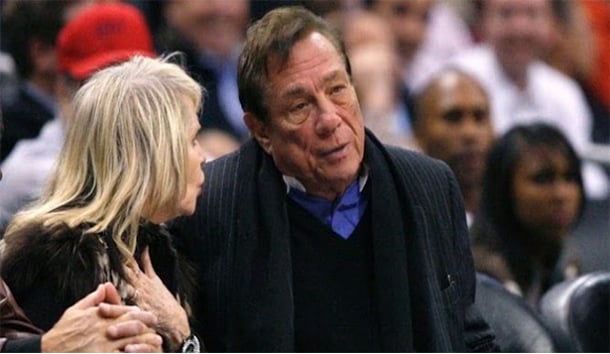Down with a resounding bang comes the wrath of that great moral institution, the National Basketball Association, upon the noggin of L.A. Clippers owner Donald Sterling. Boo! Hiss! Get the hook! And once you’ve paid your $2.5 million fine, Sterling, for the offense of lax language during a private conversation, why don’t you just die? That would be the tone and tempo of Sterling coverage in the media at the close of April. The New York Times took time out from lamenting the conservative agenda, such as it is, to ask, editorially, “Why Did the N.B.A. Long Tolerate Sterling?” Inevitably, the country’s No. 1 basketball fan, Barack Obama, weighed in from Malaysia, as to the continuing effects of race and slavery.
Yessir, yessir, we stomped that sucker Sterling all right: big fine, lifetime ban from the NBA, the works. All we have to do now is clean up the resultant damage to the right of free speech—a right unavailable, it would seem, even in private conversations, to adherents of particular viewpoints.
The viewpoint in question—Sterling’s, which can be summarized as a low opinion of blacks—is certainly antique and philosophically gawky, especially in one whose basketball team comprises mostly black players.
Does that mean it’s illegal for Sterling to like what he likes and dislike what he doesn’t like? Especially if he’s not talking for public consumption? What’s it to you, buddy? is the question that needs throwing in the faces of the Sterling lynch mob. Do the private opinions of a private citizen hurt anybody besides, in the present case, himself? What’s the need for public outrage and an auto-da-fé? Where does this get anybody? How does it purify the Soul of America? But for a recording he didn’t know was being made, we wouldn’t have any idea what Sterling said. Would we be the worse off for our ignorance?
The marketplace of ideas—a venue supposedly, but actually shakily, protected by the First Amendment—is designed for sorting out ideas and notions, sensible as well as crackpot. You could say that happened in the Sterling case, but it didn’t really: not with the semiofficial cry for the man’s head on a platter. You don’t have to execute the people with bad ideas; you argue them down.
“And though all the winds of doctrine were let loose to play upon the earth, so truth be in the field, we do injuriously by licensing and prohibiting to misdoubt her strength. Let her and falsehood grapple; who ever knew truth put to the worse, in a free and open encounter?”
John Milton speaking. Reckon the NBA and the Times ever heard of the dude?

Leave a Reply